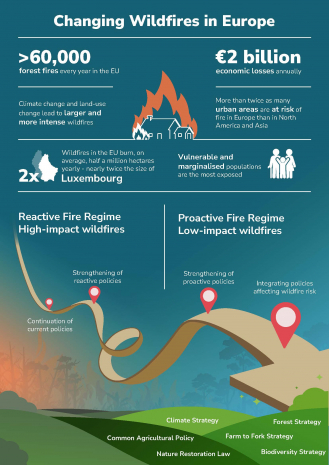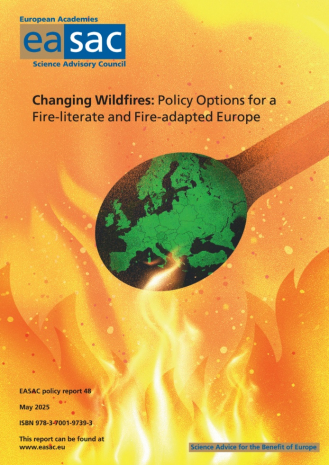Community-Level Wildfire Risk and Vulnerability
Overview
The worldwide trend of increased wildfire frequency and intensity due to climate change and the surge in urban development near and within forested areas highlights the need for communities and policymakers to manage wildfire risk. In 2023, fires torched Southern Europe, North Africa and the United States, killing hundreds and resulting in enormous economic losses. The devastating nature of these events is a testimonial to the rising wildfire intensity, the elongating fire season and the continuing urban growth in fire-prone regions.
Fire suppression and managing fuel build-up in wildlands successfully tame most but not all wildfires. The fires that go uncontrolled and make their way into communities are the ones that cause severe damage. Some community-level mitigation strategies exist, including hardening homes and managing defensible spaces around houses. However, these strategies have fallen short of what is required to lower the susceptibility of communities, determine what mitigations need to be applied and identify where in the community have been the main challenges for policymakers to address. Given the ineffectiveness of current wildfire mitigation strategies in many countries worldwide and the significant uncertainties in climate conditions, there is a need to add focus on minimising community risk.
The audiences for this project include policymakers in wildfire-prone countries globally who are interested in creating fire-adapted communities and the research communities in these countries that focus their work on developing models to characterise wildland fire potential and predict built environment vulnerability. Bringing these audiences together to discuss modelling and predicting built environment vulnerability will enable a novel lens for risk mitigation and planning at the individual property and community scales.
On 17-18 March 2025, the IAP organised an international workshop to address the impact of wildfires on the built environment. The event was hosted by the Royal Academy of Exact, Physical and Natural Sciences of Spain, in Madrid.
Read the follow-up news article about the workshop here, where you can also read and download all the presentations from the event.



